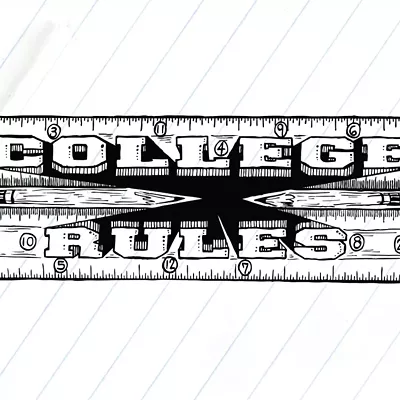Why a prank pulled at Whitworth looks different at WSU
Why the traditional four-year experience can be even richer for older students.
College can be a psychological pressure cooker. But there's help.
College Profiles: • Whitworth • Gonzaga • Eastern • WSU • University of Idaho • NIC • Spokane Community Colleges
Connor Pomeroy is a 19-year-old Washington State University sophomore, chemistry major, and member of the Cougar Marching Band who boasts a 4.0 GPA.
On top of all that, he’s battled an eating disorder. His senior year of high school, Pomeroy was hospitalized after his weight dropped to 87 pounds.
His freshman year of college, Pomeroy spent Thanksgiving break in the dorms, afraid of returning and having the annual Thanksgiving feast.
“That really hurt me, because I sacrificed family for my disease,” he says. Pomeroy has experienced depression, self-injury and a series of panic attacks that he says have caused him to “lash out and say really incredibly hurtful things.”
Fortunately, at WSU, there was help. He found the WSU Counseling and Testing Services center, where he began attending one-on-one sessions.
Pomeroy’s not alone. About 1,800 students use the WSU Counseling center each year.
Take students away from friends, family, and their traditional support structures — place them in new environments, stuffed with new pressures, new decisions, new temptations — well, it’s no wonder so many students struggle with mental illness when they hit college.
But while the environment of college poses new challenges for mental health, it also will usually provide resources to meet that challenge. You just have to know where to look.
According to Therese J. Borchard, associate editor at PsychCentral.com, an estimated 44 percent of American college students experience some symptoms of depression.
Worse, mental illness for college students, or at least reported cases, seems to be on the increase. The 2010 National Survey of Counseling Center Directors polled 320 college counseling centers across the nation, including those at Eastern Washington University and North Idaho College.
About 91 percent of participating universities reported an increase in clients with severe psychological problems. About 60 percent reported an increase in learning disabilities, and 39 percent reported an increase in self-injury issues.
Dr. Fernando Ortiz, director of Gonzaga’s counseling center, says it’s easy for students to become overwhelmed when they reach college. Here, they must cope with financial issues, deal with troublesome roommates, and adjust to being away from home.
“Self-care becomes secondary for them, so they start neglecting their sleep, maybe neglecting their academics. That later translates into stress, anxiety, concentration difficulties, and it becomes a slippery slope,” he says.
Besides counseling, Ortiz says the best way to address personal mental health is simply to take care of yourself. Improve sleep habits. Learn time-management skills. Reach out to informal emotional support systems, like parents, classmates and friends.
Most colleges in the Inland Northwest offer options for those who need professional help when dealing with their mental health problems. And students are using them — on the counseling center survey, 74 percent of institutions reported an increase in personal counseling on their campus.
And counseling center directors — at least at North Idaho College, Washington State University and Gonzaga — all say there’s been a decrease in the stigma surrounding seeing a mental health specialist.
“I just think that conditions in the world are pretty stressful right now, and have been for quite a while,” says Linda Michal, director of NIC Student Health Services. “I think that people are getting to a point of being overwhelmed with it all.”
Getting professional counseling may not only help ease your mind, it may save your academic career.
“There is a very strong relationship between people using counseling services and university retention,” says Cassandra Nichols, senior associate director of WSU Counseling and Testing Services. “People who are able to access counseling services if they need it retain and graduate from universities.”
It certainly helped for Pomeroy.
“The counseling center really does help,” he says. “Don’t be afraid to ask for help, or think you have to do things all on your own. I never really enjoyed being in college until I went to the counseling center. I wish I had gone to it sooner.”



























